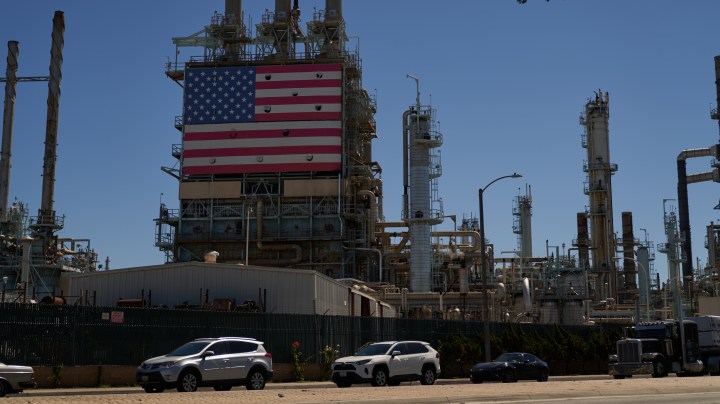
U.S. oil reserve tumbles to lowest level in 4 decades

After about 100 days of slow retreat, gasoline prices are going the wrong way again. AAA’s national average price for a gallon of gas ticked up Wednesday, then again Thursday.
Back in March, President Joe Biden authorized the release of crude from the U.S. Strategic Petroleum Reserve to boost supply and try to bring down gas prices after Russia invaded Ukraine.
This week, the Department of Energy reported that the reserve is holding less oil than it has in four decades. It’s now at around 427 million barrels — down from nearly 600 million at the beginning of the year. In 2021, the country consumed slightly less than 20 million barrels a day.
The Strategic Petroleum Reserve is basically a rainy day fund for oil.
“The goal of it has been to essentially make sure that there is enough supply in times of supply constraints, whether that is due to geopolitical impacts or weather related,” said Matt Smith, an oil analyst at Kpler, a data and analytics firm.
The government created the reserve after the oil crisis of the 1970s, Smith said. Since then, it’s come in handy a few times, like during the Gulf War in 1991 and after Hurricane Katrina in 2005.
“So Katrina came through the U.S. Gulf of Mexico, knocked out a lot of production, and so there were SPR releases to supplement U.S. supply then,” Smith said.
There were more releases in 2011 during the Arab Spring, he added, “when there was the disruptions in northern Africa in countries such as Libya.”
This year, Russia’s invasion of Ukraine upended the global oil market and prices skyrocketed.
“I know, you’re always worried about running down the rainy day fund, but it’s been raining,” said Samantha Gross, who directs the Energy Security and Climate Initiative at the Brookings Institution. “This has been a really big, really important supply disruption, and this is what it’s designed for.”
The reserves are stored in four locations on the Gulf Coast — two in Texas and two in Louisiana.
“There are these gigantic salt caverns, so you can’t see much on the surface,” Gross said. “But underground, there are these very large storage areas that we use to store hundreds of millions of barrels of crude.”
Even though the administration has been releasing about a million barrels a day for months now, Gross said those gigantic salt caverns are still more than half full.
There’s a lot happening in the world. Through it all, Marketplace is here for you.
You rely on Marketplace to break down the world’s events and tell you how it affects you in a fact-based, approachable way. We rely on your financial support to keep making that possible.
Your donation today powers the independent journalism that you rely on. For just $5/month, you can help sustain Marketplace so we can keep reporting on the things that matter to you.

















